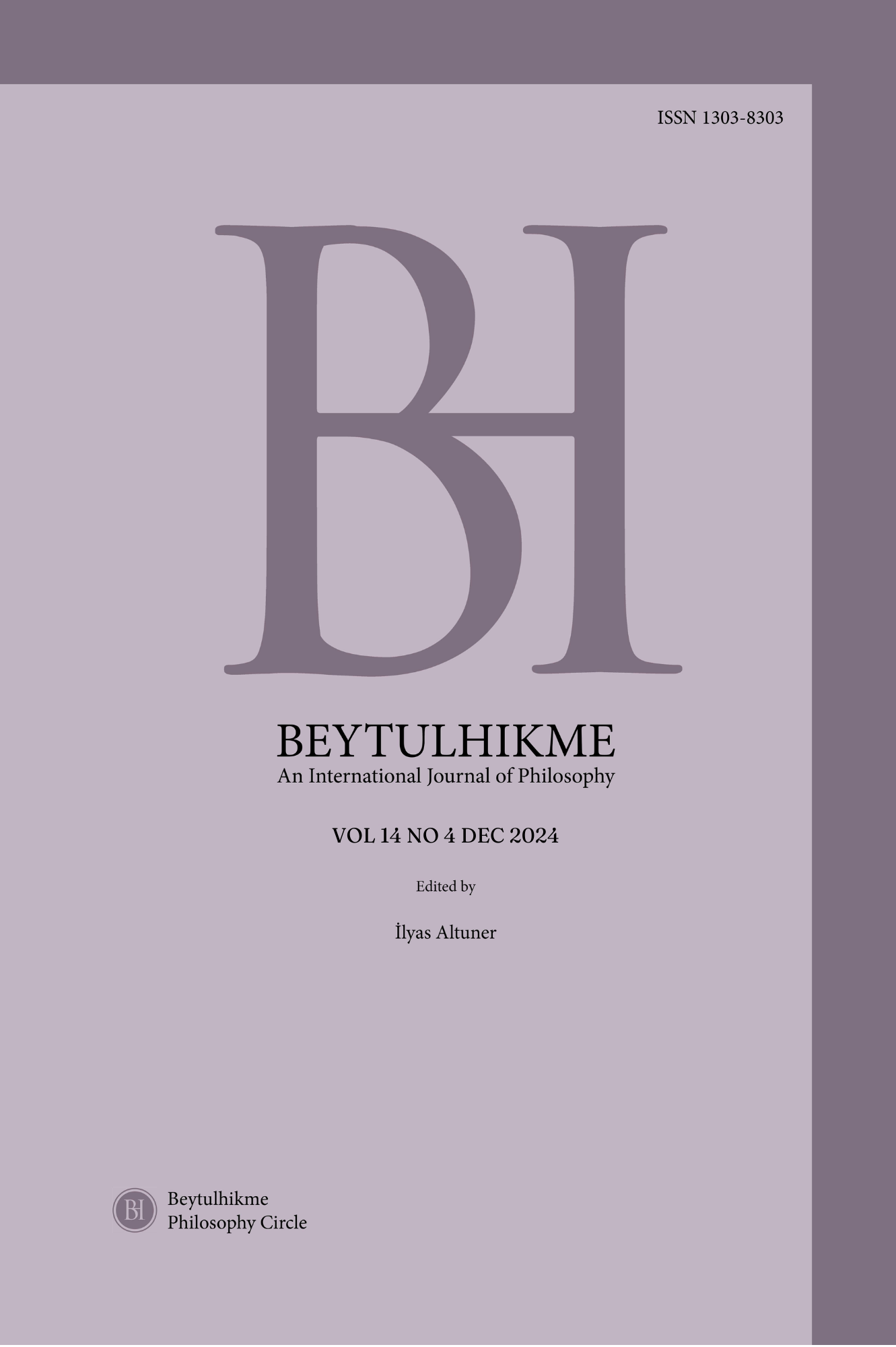Author :
Abstract
Bu yazının amacı Spinoza ve Hegel felsefesinde töz kavramının aynı zamanda Tanrı kavramı anlamında kullanılabileceğini göstermektir. Bu her iki filozofun da teist olarak okunabileceği anlamına gelir. Spinoza töz kavramından kendinde olan ve kendisi yoluyla kavranabileni anlarken Hegel tüm gerçekliğin kendinde varlığını ve kalıcılığını kazandığı şeyi anlar. Bu bağlamda, ilk olarak Spinoza’nın kullandığı geometrik aksiyomatik yöntemi ve Hegel’in spekülatif diyalektik yöntemi açıklanmaya çalışılacak ve aralarındaki farklılıklar belirlenecektir. Akabinde Spinoza’nın ve Hegel’in töz anlayışları detaylandırılacaktır. Spinoza’da causa sui kavramı, şeylerin Tanrı’da olması ama Tanrı olmaması iddiası ve onun Natura naturata ve Natura naturans şeklindeki ayrımı ele alınacaktır. Hegel Tanrı’yı kendinde ve kendisi için mutlak gerçeklik olan her şeyi kuşatan olarak anlamlandırır ve aklın tarihsel sürecinin Hristiyanlık doktrinlerinden biri olan Tanrı’nın İsa’nın bedeninde cisimleşmesi inanışına dayandırır. Bu nedenlerle, sonuç olarak, her iki filozofun da süreç teizminin birer temsilcisi biçiminde okunabileceği ileri sürülecektir.
Keywords
Abstract
The aim of this article is to show that the concept of substance in the philosophy of Spinoza and Hegel can also be used to mean the concept of God. This means that both philosophers can be read as theists. While Spinoza understands from the concept of substance that which is in itself and can be grasped through itself, Hegel understands that in which all reality gains its existence and permanence. In this context, firstly, the geometric axiomatic method used by Spinoza and Hegel's speculative dialectic method will be explained and the differences between them will be determined. Subsequently, Spinoza's and Hegel's understandings of substance will be detailed. The concept of causa sui in Spinoza, the claim that things are in God but not God, and his distinction between Natura naturata and Natura naturans will be discussed. Hegel interprets God as encompassing everything that is absolute reality in himself and for himself, and bases the historical process of the mind on the belief that God is embodied in the body of Jesus, which is one of the Christian doctrines. For these reasons, it will be argued that both philosophers can be read as representatives of process theism.





